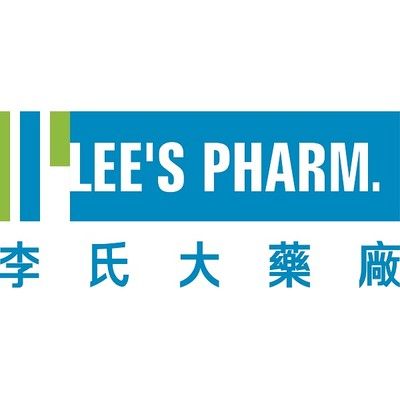TSH Biopharm (TW-8432) today (08/12/2025) announced a strategic collaboration with leading ophthalmic company Zhaoke Ophthalmology (6622.HK) to introduce BCSA25, an innovative therapy for presbyopia currently under review by the U.S. FDA. This product will be Taiwan’s first prescription eye drop specifically designed to relieve presbyopia symptoms. The collaboration not only strengthens TSH’s product portfolio in ophthalmology but also provides more diverse and clinically valuable treatment options for visual care in an aging society.
Presbyopia is a common concern among middle-aged and older adults. According to the National Health Administration’s 2021 National Health Interview Survey, the proportion of people aged 45 and above with presbyopia in Taiwan is rising, with a prevalence rate of 65.8% among those over 651. This reflects increasing near-vision demands driven by an aging population and changing visual habits. Global studies also indicate that widespread digital lifestyles and increasing visual load have led to an earlier onset of presbyopia, expanding the market demand for new, non-surgical treatment options.
The presbyopia drug BCSA25 is currently under FDA review in the United States. The product provides complementary action on two sets of iris antagonist muscles. Studies show statistically significant improvements in near vision at all time points within eight hours2, enhancing depth of focus and improving near-vision quality. BCSA25 has become an internationally recognized non-surgical treatment option for presbyopia.
Sze Yuan Yang, General Manager of TSH Biopharm, stated: “Taiwan is moving toward a super-aged society, and visual health has become an important quality-of-life issue for middle-aged and older adults. The introduction of BCSA25 not only fills a gap in Taiwan’s self-paid presbyopia treatment market but also demonstrates our commitment to bringing international innovative therapies to improve patient quality of life. Through our collaboration with Zhaoke Ophthalmology, we hope to provide more Taiwanese people access to evidence-based, non-surgical presbyopia treatment options.”
Dr. Li Xiaoyi (Benjamin), Chairman of the Board, Executive Director, and CEO of Zhaoke Ophthalmology, added: “BCSA25 is an important achievement in the field of presbyopia, and we are delighted to collaborate with TSH, a company deeply involved in Taiwan’s specialist healthcare sector. We believe this partnership will accelerate the clinical introduction and commercialization of the product in Taiwan and further enhance access to vision care for the aging population.”
This collaboration not only expands TSH’s product depth in ophthalmology but also underscores the company’s execution capability in international partnerships and the introduction of innovative therapies. Moving forward, TSH will continue to expand its specialist treatment areas, deepen its product portfolio, and leverage robust governance and reliable development strategies to bring more innovative medical products to Taiwan.
About TSH Biopharm Corporation Limited
Founded in 2010, TSH Biopharm Corporation Limited (TW-8432) is a Taiwan-based pharmaceutical company committed to patient-centric care and long-term disease management. The Company specializes in chronic therapeutic areas—cardiovascular, gastrointestinal, central nervous system, and ophthalmology—delivering safe, effective, and accessible solutions that address unmet needs in daily disease control and improve quality of life.
To meet evolving healthcare needs, TSH Biopharm has expanded beyond chronic-disease therapeutics into prevention and precision medicine, establishing an integrated framework that spans prevention, diagnosis, and treatment. Key initiatives—including probiotics, vaccines, and next-generation sequencing (NGS) testing—underscore the Company’s commitment to comprehensive, high-value healthcare.
Driven by its vision to enhance patient quality of life and serve as a preferred strategic partner for global biomedical innovation in Asia, TSH Biopharm continues to strengthen its chronic-care leadership, accelerate technology-driven innovation, and expand across emerging Asian markets. The Company upholds strong corporate responsibility and governance standards, aiming to create long-term, sustainable impact on public health.
For more information, please visit: https://www.tshbiopharm.com/
About Zhaoke Ophthalmology Limited
Founded in 2017, Zhaoke Ophthalmology Limited (SEHK: 6622) is a leading ophthalmic pharmaceutical company dedicated to researching, developing, manufacturing, and commercializing therapies that address significant unmet medical needs worldwide. The company has been listed on the Main Board of the Hong Kong Stock Exchange since 29 April 2021.
Zhaoke Ophthalmology has a comprehensive drug portfolio of innovative and generic treatments covering major eye diseases across both the front and the back of the eye. Currently, the company is focusing on major near-term development programs that are either in the registration stage (i.e. Cyclosporine A Ophthalmic Gel, Atropine Sulphate Eye Drops (NVK002) and Bevacizumab Intravitreal Injection (TAB014)), or in different stages in clinical trial (e.g. BCSA25, ZKY001) for the treatment of five respective major ophthalmic diseases, i.e. dry eye disease, myopia, wet AMD, presbyopia and corneal epithelial defects. Many drugs are being produced in its state-of-the-art, fully functional development and production facility in Nansha, Guangzhou, Guangdong Province.
Through its ambitious growth strategy, which includes partnering with domestic and international pharmaceutical companies, Zhaoke Ophthalmology aims to become a global leader in the field of ophthalmology.
For more information, please visit: www.zkoph.com








